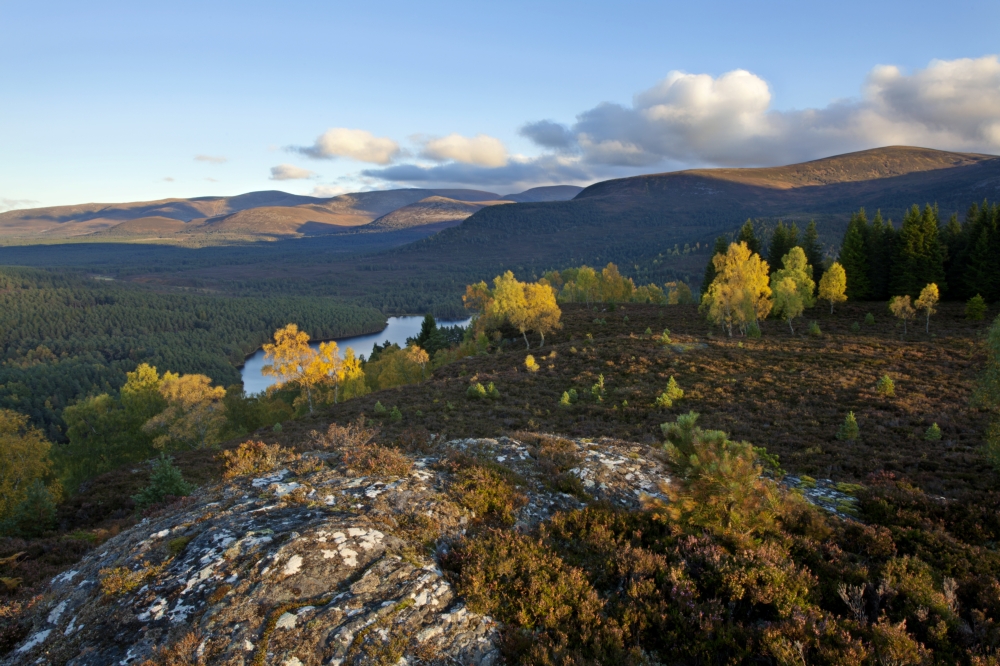Park Talk: Talking Climate Emergency

Park Talk: Talking Climate Emergency
By CEO Convener, Xander McDade
Happy New Year! Here at the Cairngorms National Park Authority our resolution is to do all we can to tackle the climate emergency. From our corporate responsibilities to ensuing there is a plethora of nature based solutions built into the next Cairngorms National Park Partnership Plan – 2020 truly marks a step change for us all as we help to contribute to the Scottish Government’s 2045 net zero greenhouse gas emissions target.
In a place so rich in resources as the Cairngorms National Park, nature based solutions are going to be central to how we contribute to tackling the climate emergency. We are ideally placed here to capitalise on the country’s requirement for those natural remedies such as peatland restoration and woodland creation working on a landscape scale.
There is already a huge amount of excellent conservation work taking place right across the Park by lots of different landowners and managers, communities and organisations. We want this to continue and to expand and the next Cairngorms Nature Action Plan will be a key document to guide this work.
Alongside this we need to ensure that our communities in the Park are sustainable for the future. We have more than 18,000 residents and almost 2 million visitors (and rising). Those numbers could have a big impact on our environment if we are not well prepared and we must all play our part, for example, from making sensible travel choices to buying local where possible.
The CNPA has invested heavily in developing Active Travel solutions to support walking and cycling within and between communities encouraging residents and visitors to ditch the car now and again. My own personal green resolution is to use public transport more. Encouraging people to use green modes of transport like cycling, will reduce CO2 emissions – and the bonus – it is also helping to improve our own health and wellbeing!
We practice what we preach at the CNPA with board and staff making green commitments such as ‘only buying second hand clothes for a year’, ‘using the car less’, ‘recycling more’, and so on.
The Park Authority as an organisation has been monitoring its carbon footprint since 2007/08 and in a decade it has managed to reduce it from 150 tCO2e to 90 tCO2e in 2017/18. Measures include a reduction in vehicle use and switching to more environmentally friendly pool cars, a reduction in electricity usage, cutting down on paper use, the installation of a biomass boiler, buying only eco-friendly cleaning products and making recycling easier around the office.
The climate emergency is something that cannot be ignored and we will continue to look at ways in which we can work together with other organisations, businesses and communities in the National Park to reduce our impact and ensure that we leave a healthy and enriched environment for future generations.
Alert
Latest from the National Park
A dose of the great outdoors: nature prescriptions on the NHS
As one of the first people to be prescribed nature on the NHS, Caron shares her story on how access to support to get outdoors has changed her life for the better.
Five years on
Reflections from the Cairngorms National Park Ranger Service.
What’s the point of wasps? You might be surprised
Resident expert and entomologist Hayley Wiswell shares more about the ‘yellow jacket’ and how we can learn to live peacefully alongside them.
Relevant alerts
-
The Scottish Fire and Rescue Service has issued a wildfire warning impacting parts of the National Park from Wednesday 13 August until Tuesday 19 August. If you are out and about in the Cairngorms National Park please observe the following guidance:
- Do not light any fire or barbecue.
- Always ensure cigarettes are fully extinguished and take your litter (including glass) away with you.
- Enjoy the outdoors responsibly - most wildfires are caused by human activity.
- Stay alert - with dry vegetation and warm weather, fires can start easily, spread rapidly, and burn intensely.
- If you see a wildfire, dial 999.
For further updates on wildfire risk across Scotland, visit the Scottish Fire and Rescue Service website.




